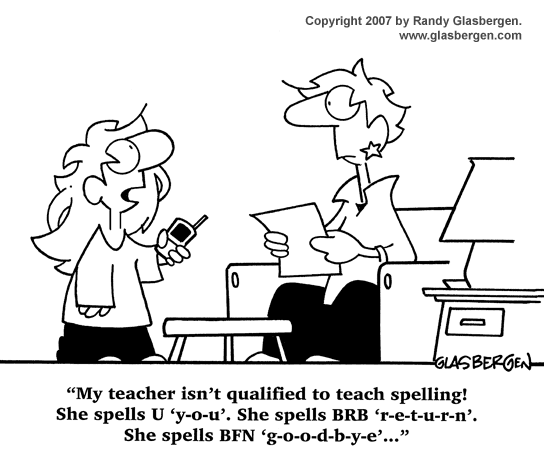I am now well into my 3rd year teaching 7th grade, and while this year has been much more smooth-sailing than last year, I still often wonder if when the time comes to look for another teaching job, I should look into teaching an older age group. You see, there’s a reason that teaching middle school has the stigma it does. However, there’s also a reason that many of the teachers that start out teaching middle school never leave it.
Here are 5 things I wish I’d known before I took this job:
1. Teaching middle schoolers (grades 6-8) means that you straddle an awkward line between elementary and high school. It means that some of the teachers you work closely with will want to treat their kids like they’re still in elementary (give them A’s for effort! be like their mother!), and some teachers will have the opposite mindset (get them ready for high school! make them grow up!). Falling into the second camp myself, I quickly discovered that I butt heads more often than I thought I would with some other faculty members who have completely different mentalities than myself. It’s not that one of us is right and the other wrong, but it is something I wish I would have known that I would be up against.
2. Middle schoolers have vastly different developmental rates, not just physically but mentally as well. Although this was a fact I’d learned frequently in all the psychology classes I took in college, it didn’t “really” hit me until I was asked to teach 150 students who were developing at completely different rates. In 7th grade, I’ve hit just about everything on the spectrum, from kids who still pick their nose (and eat it!) and read at a 2nd grade level to kids who are reading books like The Count of Monte Cristo for fun and who can reason with me and write like they’re in college (no joke). I know that teachers at all age groups will find vast variations within the students, but I think that those variations are by far the most pronounced in this particular age group. This developmental fact makes teaching critical thinking incredibly difficult because some students honestly have not developed the ability yet to think abstractly, so it’s difficult to try and expect them to answer the higher-level questions as well as a student who has reached that developmental milestone.
3. Although people always bring up the awkwardness of the age group, one great thing about teaching middle school is that the students still have some fear of your authority, as well as complete and absolute trust that everything you say is the gospel truth. Because of this childlike trust, I have learned to be extra careful when it comes to sarcasm in the classroom—due to many students not having developed abstract thinking/judgment skills and due to their trust in absolutely everything you say, I’ve found it’s far better to just avoid sarcasm altogether. Otherwise, I’ll have kids going home every day to tattle to their parents how I told them that yes, I do indeed use the emergency “toilet” in the classroom whenever I’m too lazy to walk down the hall, or that no, we didn’t in fact cover anything useful, practical, or important while they were gone on vacation to Florida and so they are therefore free from the responsibility of having to make any work up.
4. It’s almost as painful watching kids go through adolescence as it was to go through it yourself. I am slowly becoming better at learning to laugh at the awkwardness inherent in the age group, but more often than not, my heart just cringes inside whenever I see students trying to hit on members of the opposite sex for the first time or when I see a kid trip over his too-big feet in the hall. Three years in, and the awkwardness doesn’t get any less painful. And because kids at this age are so hypersensitive to what everyone else is doing socially and otherwise, you find that YOU (as the teacher) are just as scrutinized as everyone else. It’s kind of like being 13 years old all over again, when you’re paranoid that everyone is watching you—except that this time, everyone really is. I once had a girl in my creative writing class write the most detailed description of me and how I dressed/looked/acted and read it aloud to everyone during the sharing portion of the hour. Her spot-on descriptions both horrified and fascinated me–I had no idea I was being watched so closely all the time.
5. Because many students are not too apathetic towards school and learning (yet), you can expect more moments of unabashed enthusiasm from this age group than you could from a group of high schoolers. You can also expect more gifts on Christmas as well as on your birthday, so all in all, it’s not too bad of a gig to get yourself into. Apart from the nose-picking, that is…






